Safari with a purpose – make your next holiday count
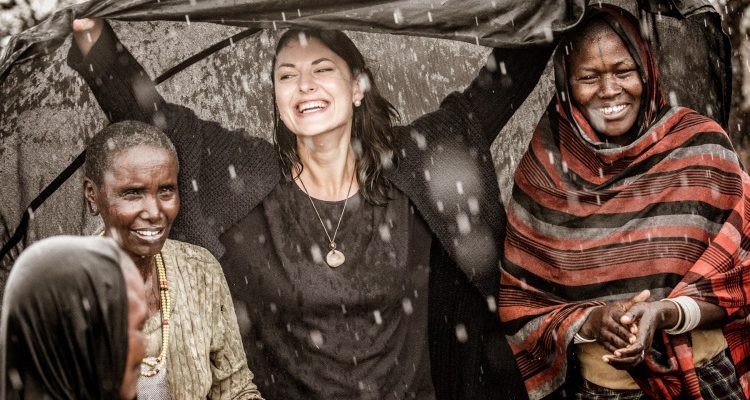
The past year has highlighted the important contribution made by international guests when it comes to funding all sorts of incredible conservation work in Africa, as well as other parts of the world. Much of this work, protecting wildlife and habitats and working with local communities, goes on behind the scenes and often with little fanfare. Increasingly, however, visitors can enjoy witnessing (and even participating in) some of this hard work. Here are some ideas where you can ‘safari with a purpose’.
Kenya
Elephant Watch Camp, owned by the Douglas-Hamilton family, is one of northern Kenya’s best known safari camps. Set on the banks of the Ewaso Nyiro River, it’s in a key area for both conservation and safari in the Samburu Reserve. Guests can visit Iain Douglas-Hamilton’s Save the Elephants research centre and learn more about the work undertaken there. Profits from the camp go to Save the Elephants too.
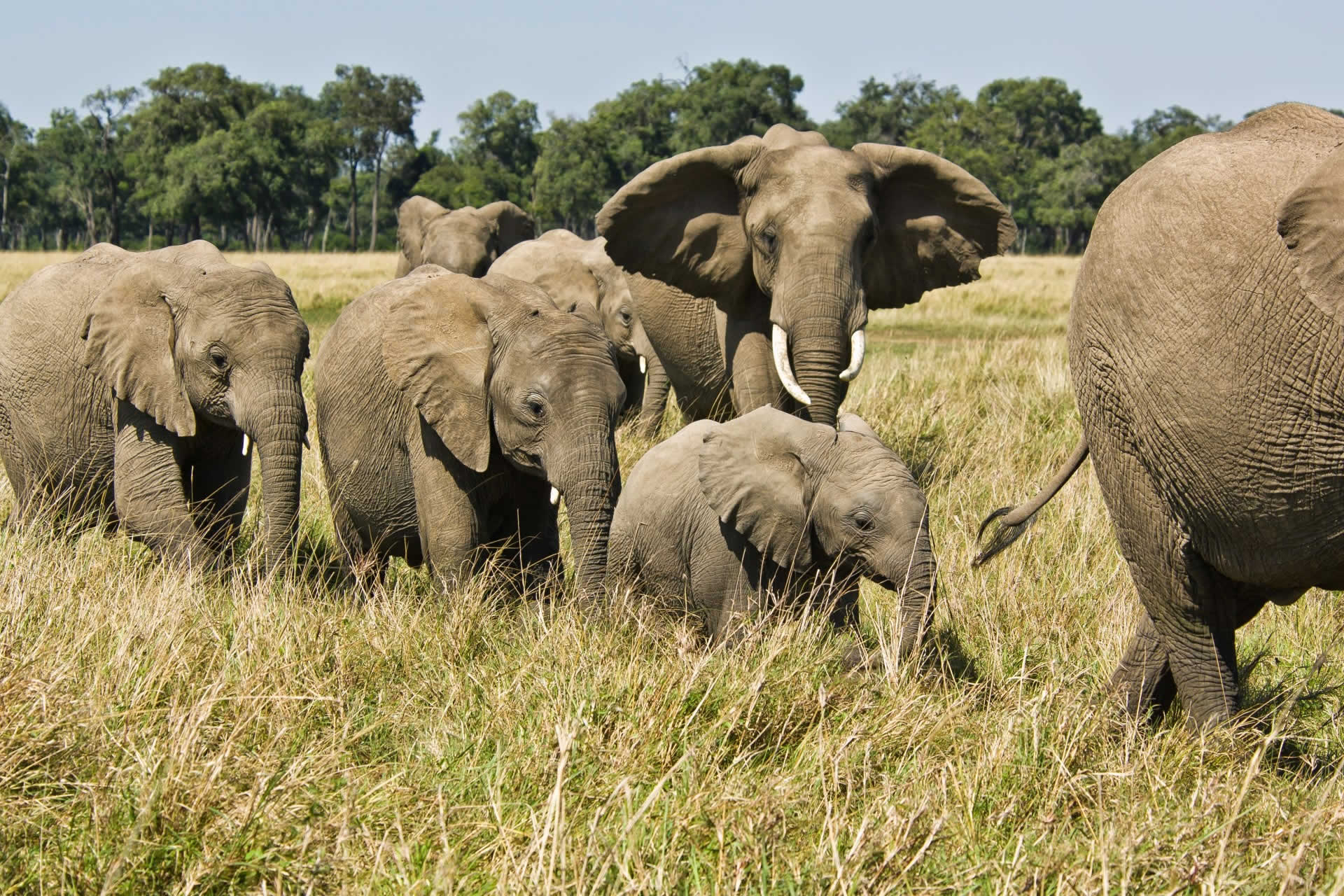
Elephant close to Elephant Watch Camp
Sarara Camp in the Mathews Mountains is owned by the local Samburu community, and during its 20 year existence has seen the valley it overlooks return to a haven for wildlife and a safe place for the people and their livestock. Habitat conservation and wildlife restoration has gone hand in hand with much improved relations with neighbouring tribes, much better security, and enforced agreements about the numbers of livestock allowed into the valley for food and water. The Namunyak community’s strength of feeling towards their wildlife is indicated by their recently established Reteti Elephant Sanctuary. The elephant orphans are cared for by the local Samburu and visitors can view the elephants as well as enjoy a behind the scenes tour of the sanctuary. Reteti is within easy reach of Sarara, Sarara Tree, Saruni Rhino and Saruni Samburu.
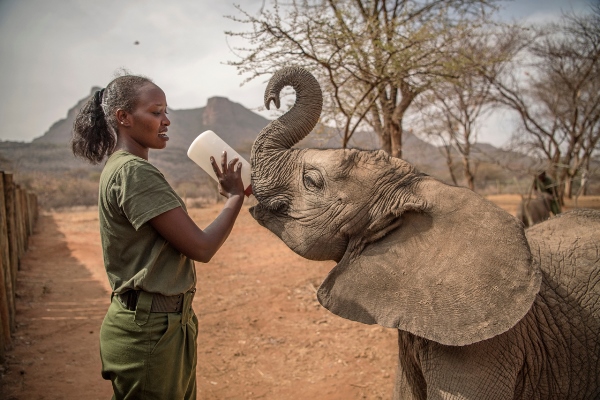
Baby elephant being cared for at Reteti Elephant Sanctuary
Guests at Borana Lodge – a real beacon of African wildlife conservation – can join the rhino protection rangers on morning patrols, learning about the work they do and perhaps help out if needed.
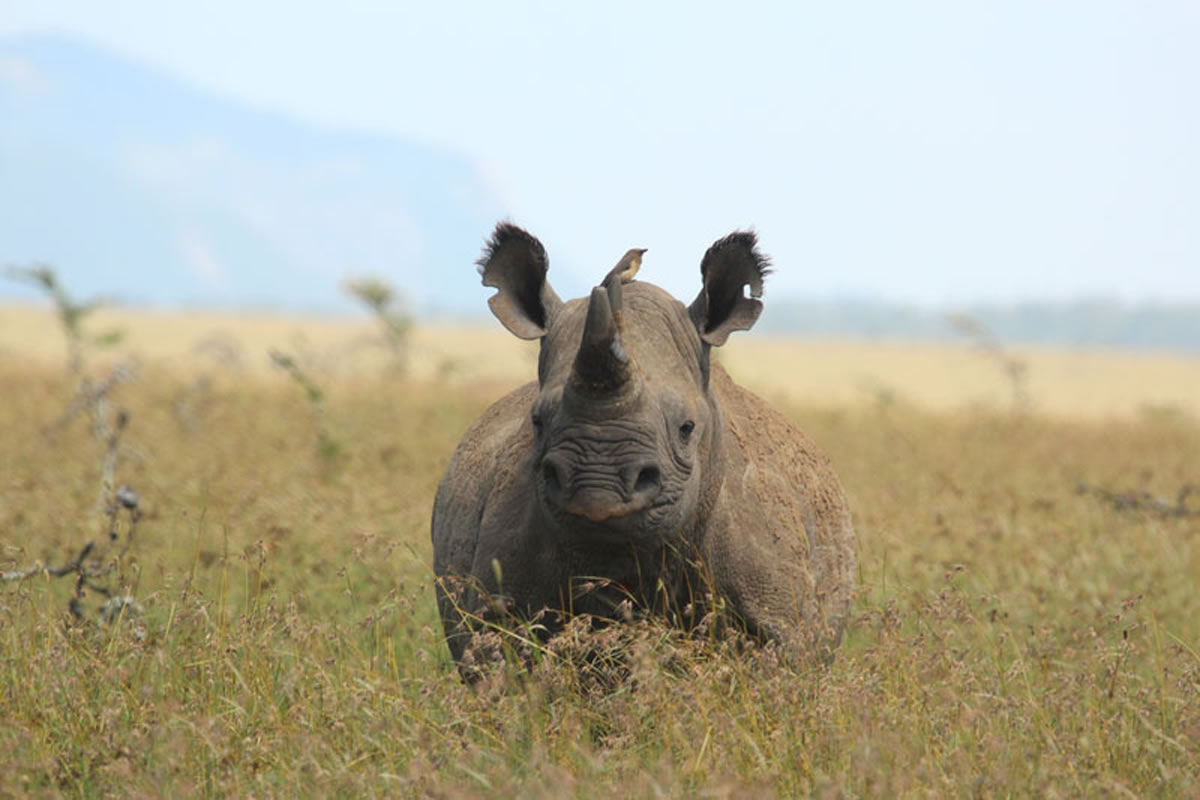
Rhino conservation is an important part of work carried out at Borana Lodge
In the Masai Mara, any guest staying on one of the private Masai owned conservancies around the Masai Mara National Reserve is directly benefitting the local people. The Cottar family has been operating safaris in Kenya for more than 100 years, and the new Cottar’s Conservation Camp allows guests to take part in some of the work the family is conducting with the local Masai community.
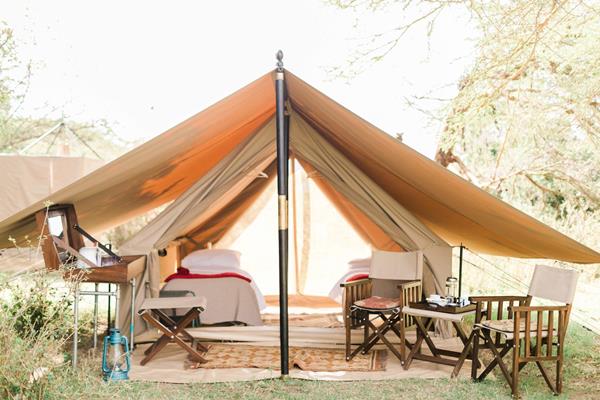
Accommodation at Cottar’s Conservation Camp
Tanzania
Most of Tanzania’s wildlife is found in National Parks, but a few excellent private conservancies have added to the land area under conservation management. Chem Chem, Mwiba and Singita Grumeti are excellent examples, and all three significantly expand the wildlife habitats available and help to keep migration corridors open. Guests can witness work supporting the local communities which helps to educate children, to improve livelihoods, to encourage entrepreneurship and, ultimately, protect these vital wildlife habitats.
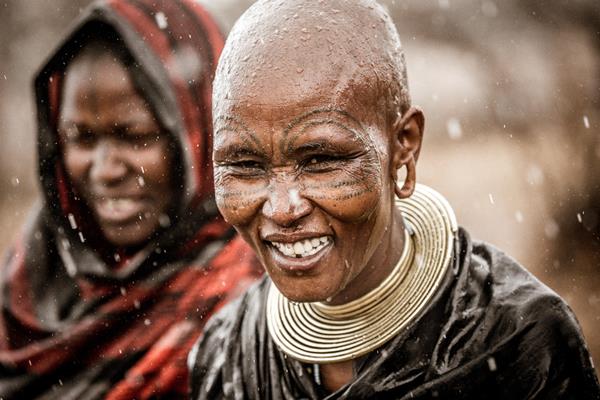
Working with local communities is very much part of life at Mwiba Lodge
Rwanda and Uganda
Volcanoes Safaris is a key provider of community development, conservation and social uplift in both countries. Among the many excellent projects they support are the Bwindi Community Hospital, the desperately marginalised BaTwa people in Mgahinga National Park, conservation of the Kyambura Gorge and assistance for local people in Queen Elizabeth National Park.

BaTwa dancers at Mount Gahinga Lodge
Zambia
Wilderness Safaris operates two seasonal safari camps on the Busanga Plains in Kafue National Park. This very remote and very seasonal part of Kafue is effectively cut off during the rains and the camps are only open for five months each year, rendering them commercially dubious propositions. Nevertheless, Wilderness, as a conservation focused business, has made a long term commitment to the area, and funds conservation work, anti-poaching patrols, local community development and education throughout the year. This work is crucial to protecting the local wildlife from bushmeat hunters, and also to deter farmers from encroaching on the park. Guests staying at Busanga Bush Camp and Shumba Camp have the opportunity to see this in action
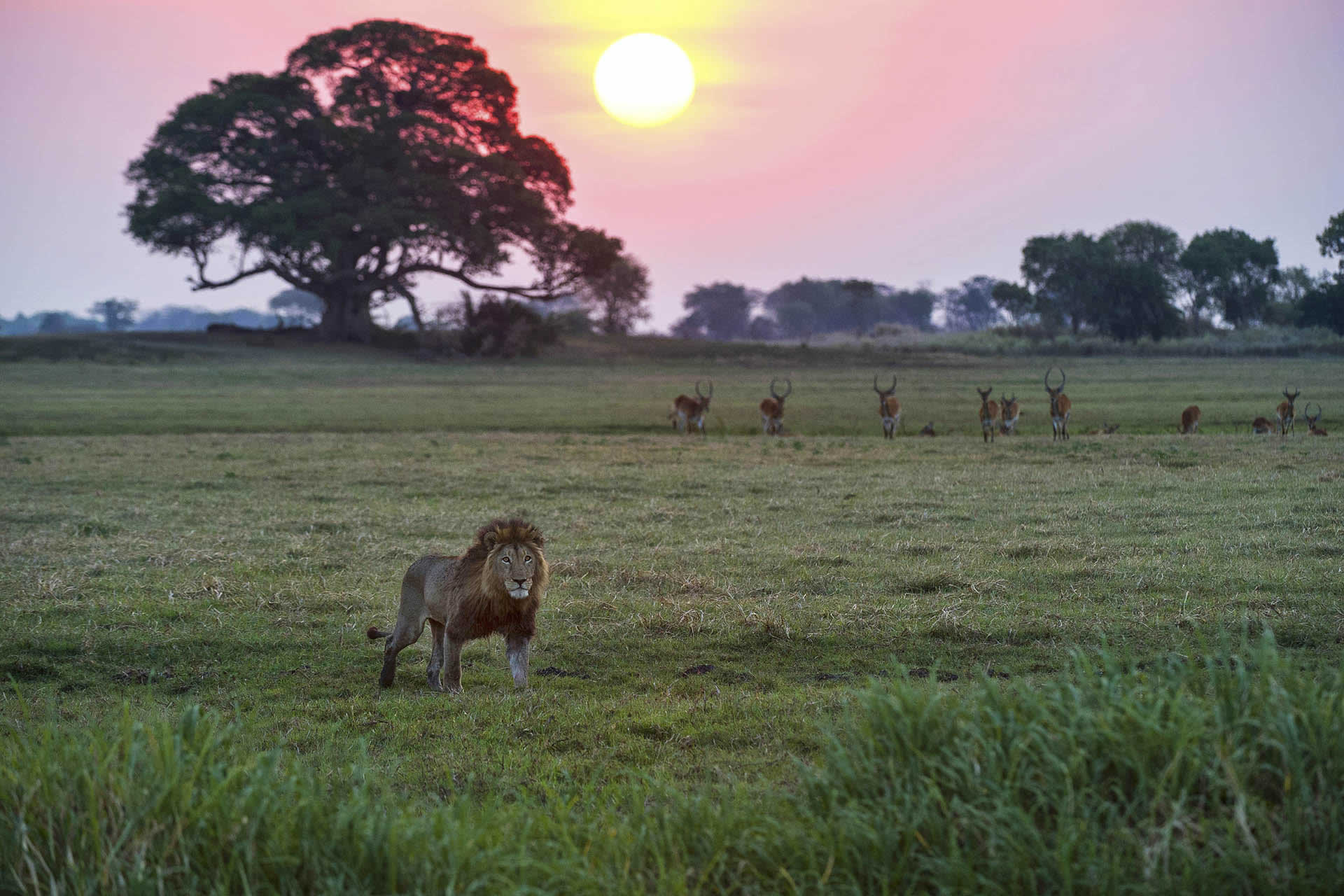
Wildlife in the remote Busanga Plains close to Busanga Bush Camp
Zimbabwe
Singita Pamushana and Chilo Gorge Lodge play an important part in in protecting the wildlife and habitats in south eastern Zimbabwe, and both properties support extensive work in the local communities, whether feeding school children or funding schools and clinics. Visiting these communities is a big part of any stay here, and the people welcome a chance to chat to their supporters.
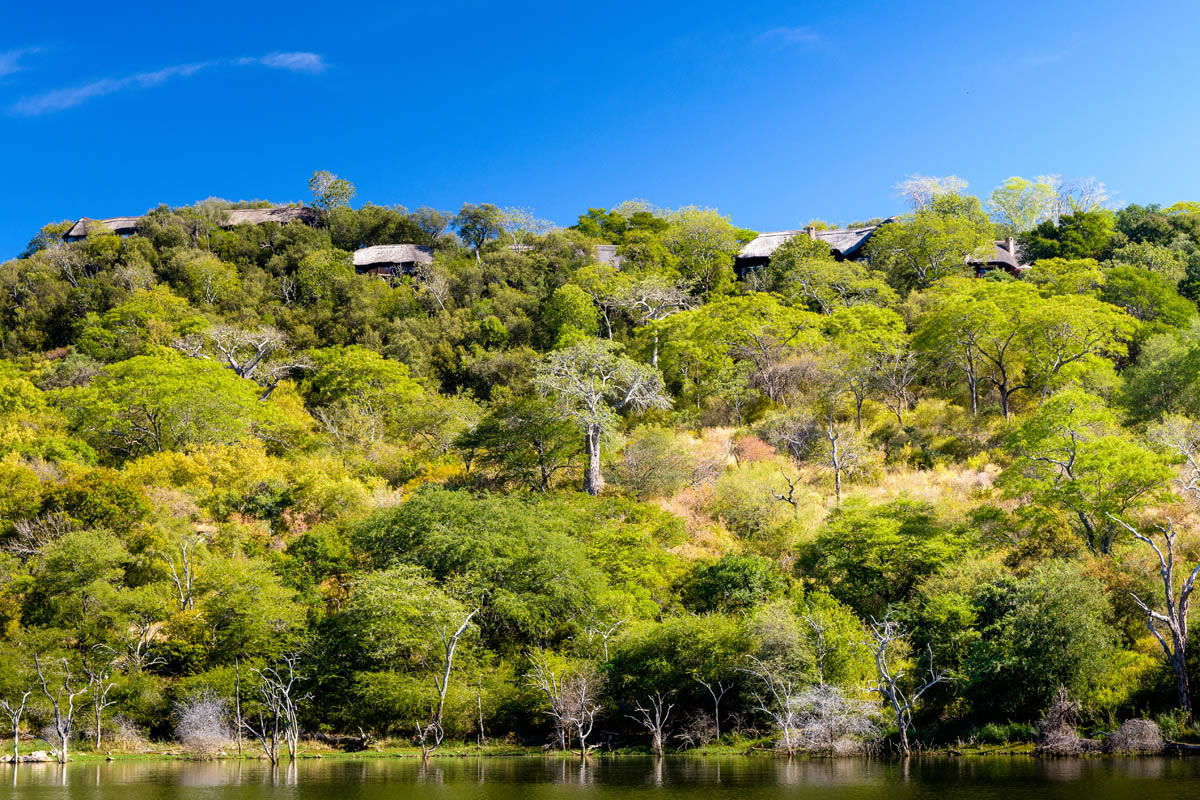
Singita Pamushana enjoys an exceptional wilderness setting
Imvelo Lodges operate in close liaison with the local community in Hwange National Park and also the national park authorities, providing the school with significant resources and recruiting many staff from Ngamo village. In addition to this, they look after the operation and maintenance of a large number of water pumps in the park, and arrange dental and optician safaris every year, during which the local people can have any dental or eye problems attended to. Guests can visit the village, meet the people, join in at school assembly, and also join Imvelo’s staff on a ‘pump run’, checking and refuelling a good number of water pumps.
Botswana
Conservation underpins Botswana’s tourism policy and private concessions cover much of the country’s finest wildlife habitat. Any safari business that wishes to bid for one of these concessions is required to commit large amounts of funding to local communities, adhere to the highest standards of environmental management and operation, and to ensure the wildlife, and ultimately the people of Botswana, are the ones to benefit from the high price tags associated with a safari in Botswana.
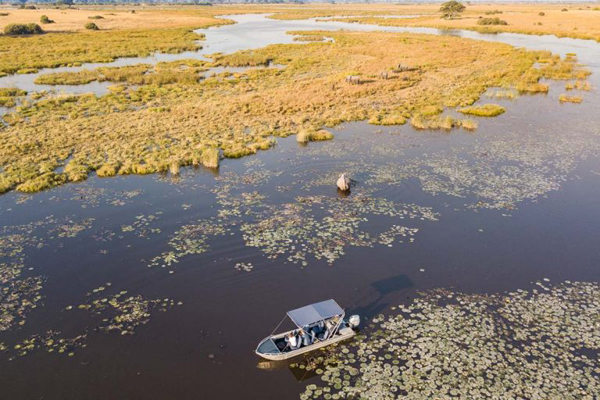
Boating amid stunning scenery while staying at Selinda Camp
The Linyanti and Selinda concessions on the border with Namibia are good examples of how this sort of tourism can sustain wildlife migration corridors between water sources and food supplies, and provide good revenues to local communities and the Botswana government in the process. Stay at the newly rebuilt Duma Tau or Selinda Camp for the best views and experience of this magnificent region.
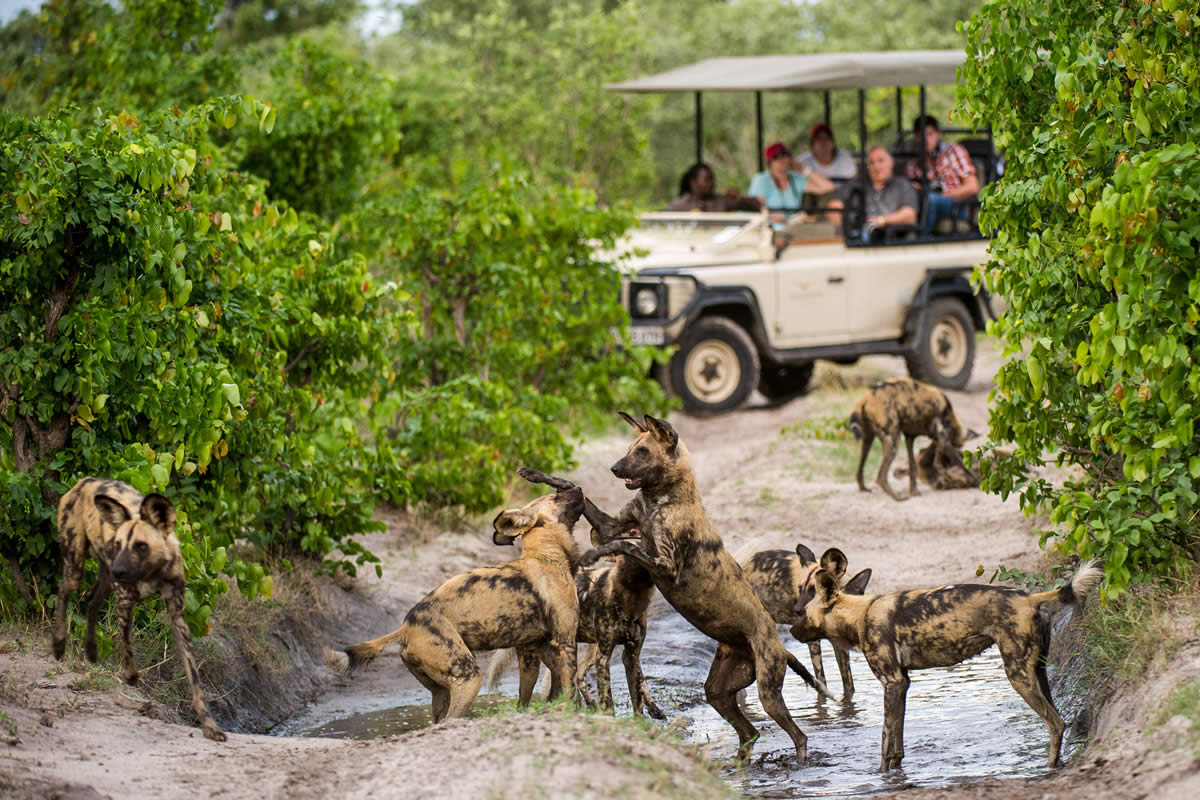
Wild dog close to DumaTau
Namibia
Community owned properties such as Grootberg and Damaraland Camp are crucial for encouraging the engagement of local people in the protection of their land and wildlife. Both have been very successful in this respect. Profits from Desert Rhino Camp support Save the Rhino’s work to protect the black rhino population in the Damaraland region, as do contributions from Huab Under Canvas and Onduli Ridge.
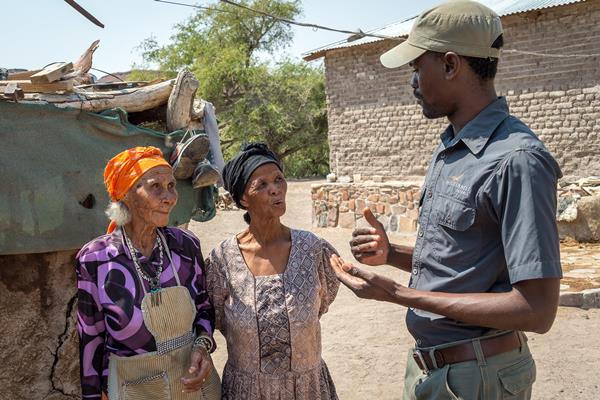
Local ladies in conversation with one of the safari guides at Damaraland Camp
The Wolwedans collection was established principally to fund the conservation and restoration of the NamibRand Nature Reserve on the edge of the Namib Naukluft National Park, and to revive the land from the negative effects of decades of livestock farming. Guests see all of this work still ongoing and get to understand the natural history of the region with the guides who know this spectacular place intimately. Wolwedans also funds a cookery school and trains significant numbers of people from really deprived backgrounds to excel in hospitality and tourism.
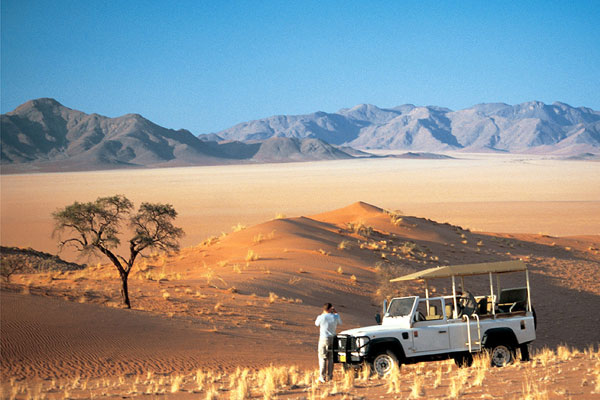
The exquisite desert scenery of the Namib Naukluft National Park in which the Wolwedans collection of lodges are set
South Africa
Numerous private wildlife reserves in South Africa have done superb work in restoring natural habitats from former farmland, including Madikwe, Kwandwe, Phinda and Tswalu. Some, however, have a much bigger picture in mind, and the Tomkins family at Samara have the vision of restoring the ancient and long lost elephant and antelope migration routes between the Karoo and the coast around Port Elizabeth in the Eastern Cape. This will require many years of dedicated negotiation and fund raising, but you wouldn’t bet against it happening when you consider what the family has already achieved at Samara itself. Guests here can opt to follow the ‘Conservation Journey’, which can include wildlife monitoring, setting and collecting camera traps, tree planting, assisting researchers with data entry and collecting, and ecosystem management and community projects.
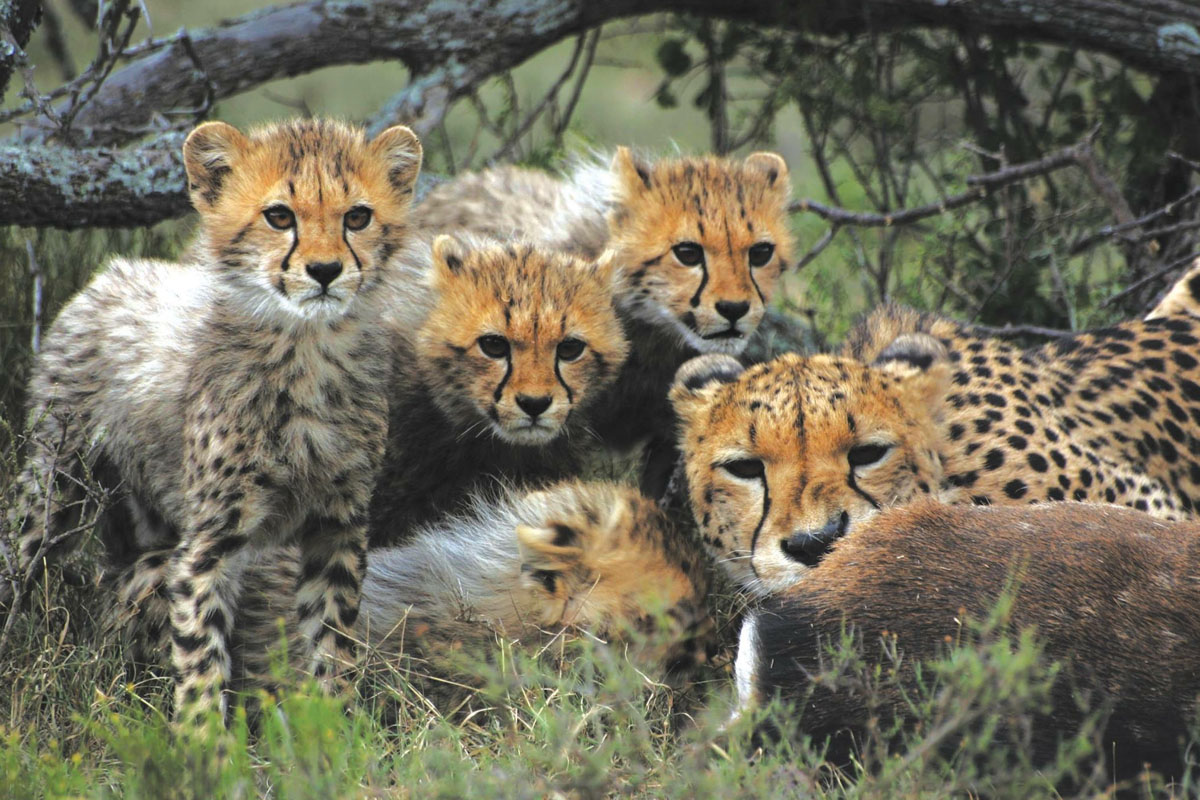
The restoration of farmland to its natural habitat has been a wonderful success story at Samara
Other good choices for anyone wanting to get hands-on with conservation include Kwandwe and Phinda which offer rhino notching experiences for guests, while Marataba Conservation Camps offer activities focused on assisting with conservation work, such as radio collaring animals, helping record identification markings, and tracking with telemetry.
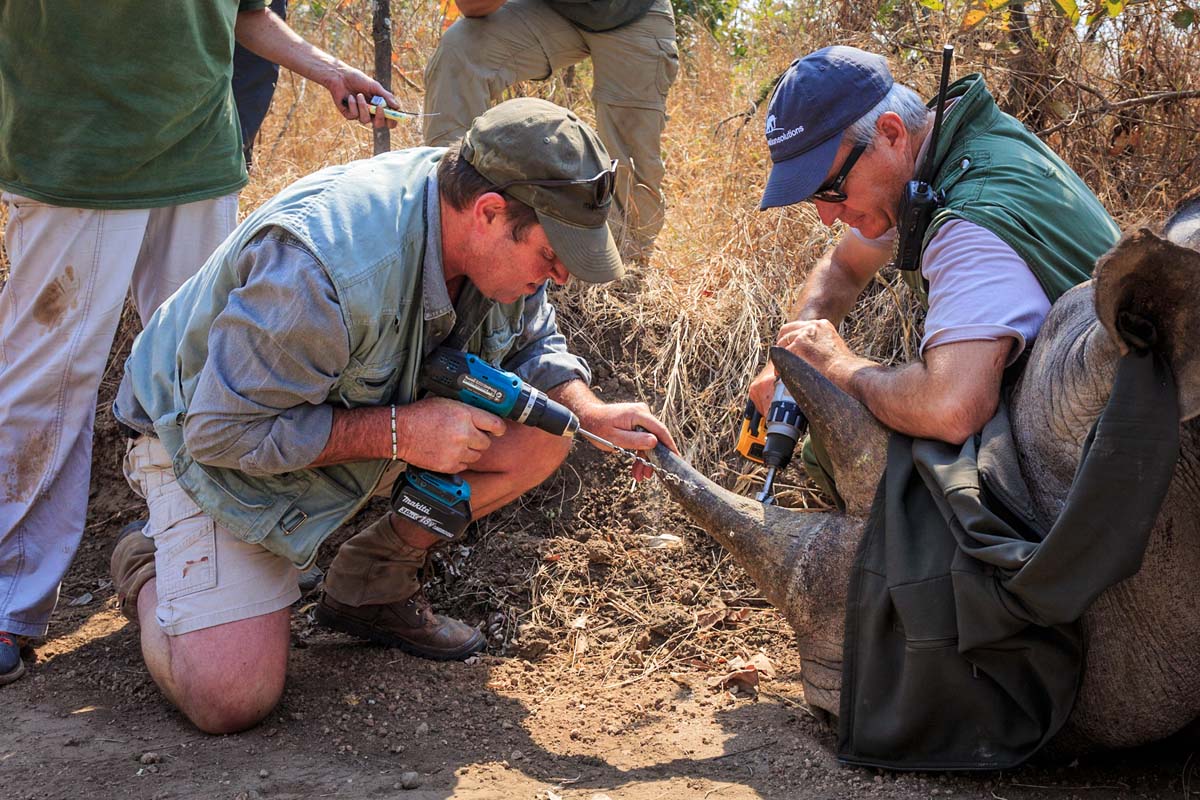
Conservation work in action at Marataba Conservation Camps
The Ocean
It’s not just the terrestrial lodges that contribute to conservation either. Many fine beach properties are doing superb work in restoring their marine and shore habitats;
Maldives
Six Senses Laamu has coral planting opportunities for guests, helping to restore the reefs around the respective island. Turtle protection is also important work undertaken here. Experienced divers can also join the Manta Trust team, assisting with their research on manta rays in the area. After each dive, a member of the team will help identify the individuals in any photographs you have taken, and if you encounter a new individual you are given the opportunity to name the manta.
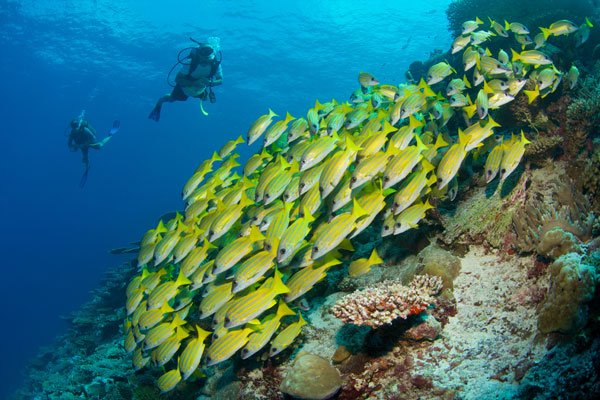
Six Senses Laamu where guests can get involved in reef restoration and manta ray research
Seychelles
North Island and Fregate Island both have habitat restoration at the heart of their businesses; both have active programmes in place for eradicating invasive alien species and providing sanctuary for critically endangered endemic species.
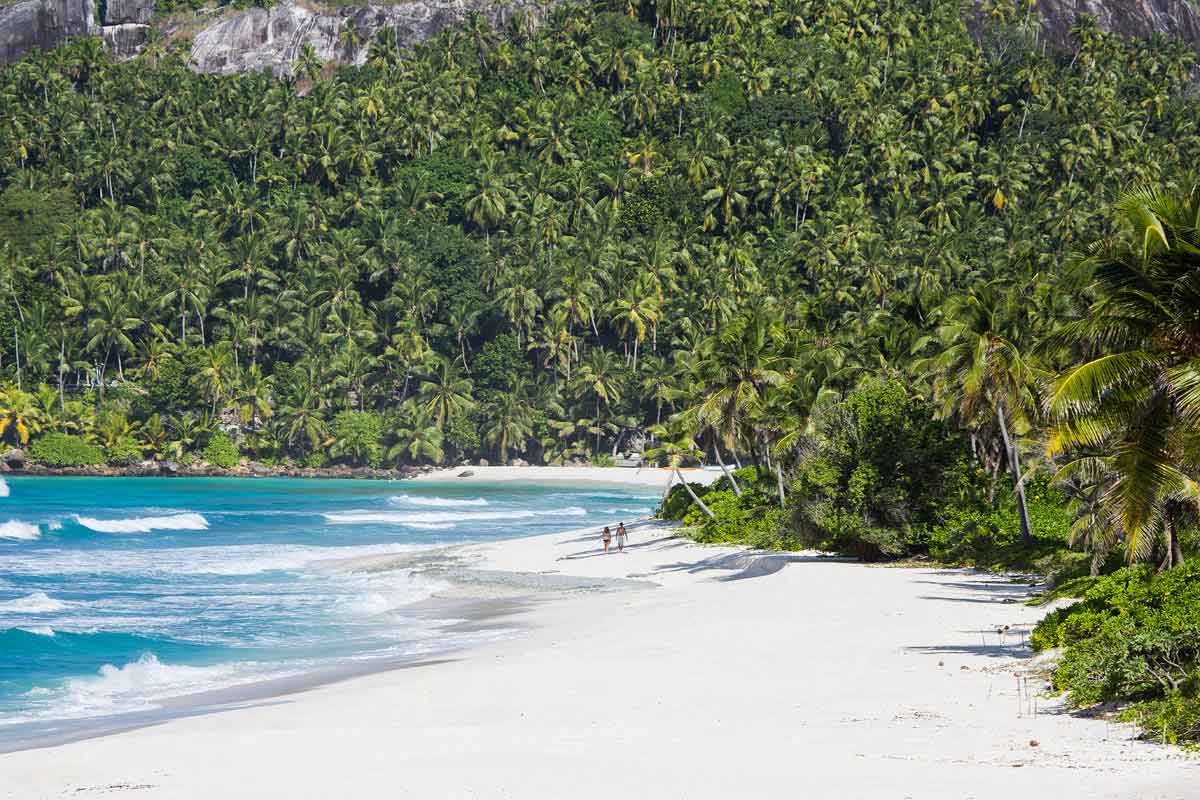
North Island, where restoration of the island’s natural habitat is a key focus
Further afield, some 600 miles from Mahe, Blue Safari Seychelles undertakes to protect some of the most pristine and isolated atolls and reef on earth in the Cosmoledo, Astove and Alphonse islands. The marine life here is phenomenal, and it’s also thankfully relatively intact. Tourism provides crucial resources and presence in this marine paradise to deter those who might otherwise plunder the riches on offer.
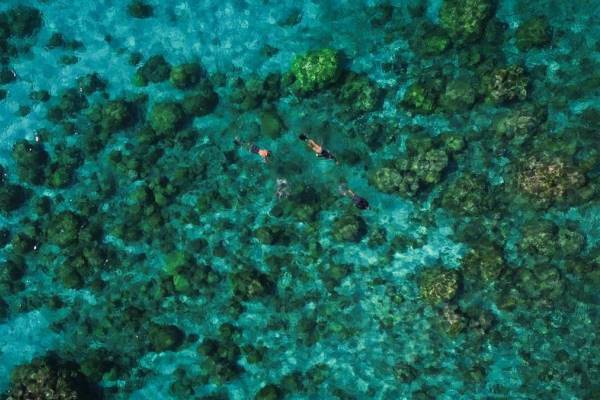
Snorkelling in the crystal clear waters around Cosmoledo
Madagascar
Miavana is a beautiful private island in a small archipelago off the north-eastern edge of the mainland, where the conservation focus is both marine and land based. Work is ongoing with the local seaweed farming and fishing communities to enhance the marine habitats, and with farming communities on the mainland to protect the remaining forests and lemur population.
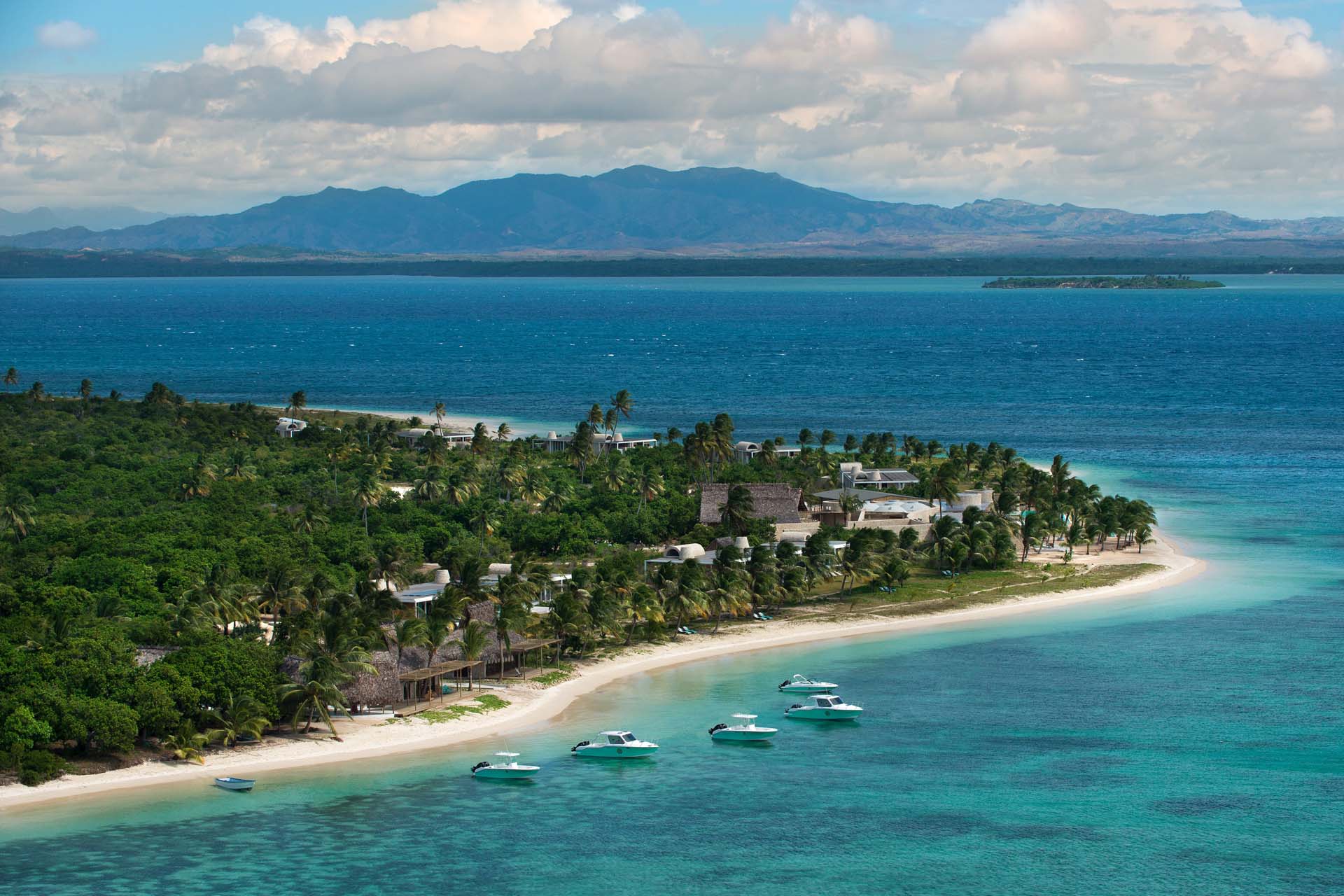
Time + Tide Miavana where both land and sea-based conservation can be seen in action
Coastal mainland Africa
A plethora of wonderful hotels and lodges, from Grootbos in South Africa to Peponi in Kenya, offer guests the chance to witness conservation in action, to assist freshly hatched turtles to the sea, to help clean up beaches and so many other great ideas.
The above is far from being an exhaustive list, but hopefully gives a few ideas to tempt you into further enquiries about how you too can help.
What next?
We would be delighted to help you plan a safari encompassing any of the conservation activities mentioned here. Our team of experts has travelled widely throughout Africa and can offer expert advice on every type of safari from family and beach holidays to riding and primate safaris. Do get in touch – chatting to people by phone or email is what we do best. We listen, we explain, we answer all sorts of questions even those you didn’t know to ask, and finally we make suggestions. If this is your first time to Africa or your twenty first, we have a team standing by to help make the planning easy and the journey the best ever. Please get in touch whatever stage you’re at.
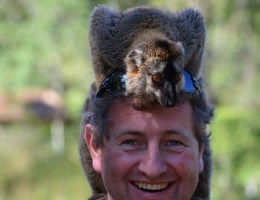
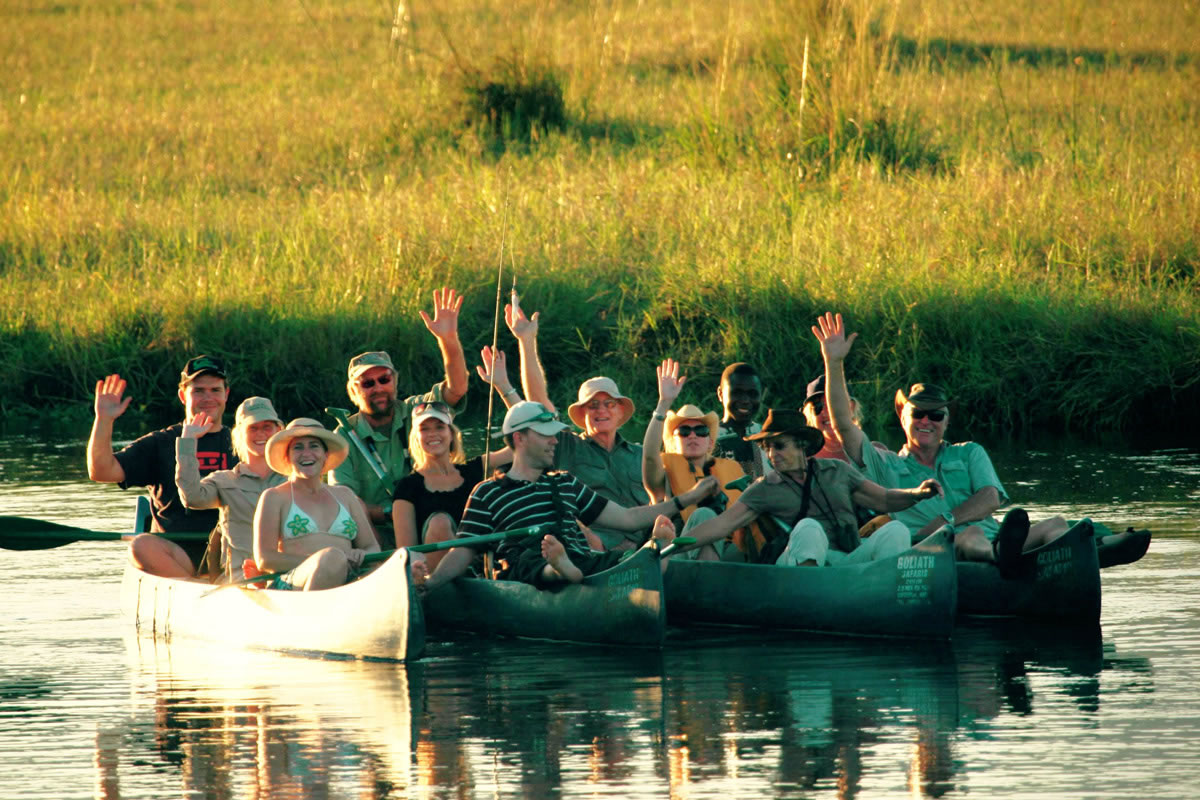
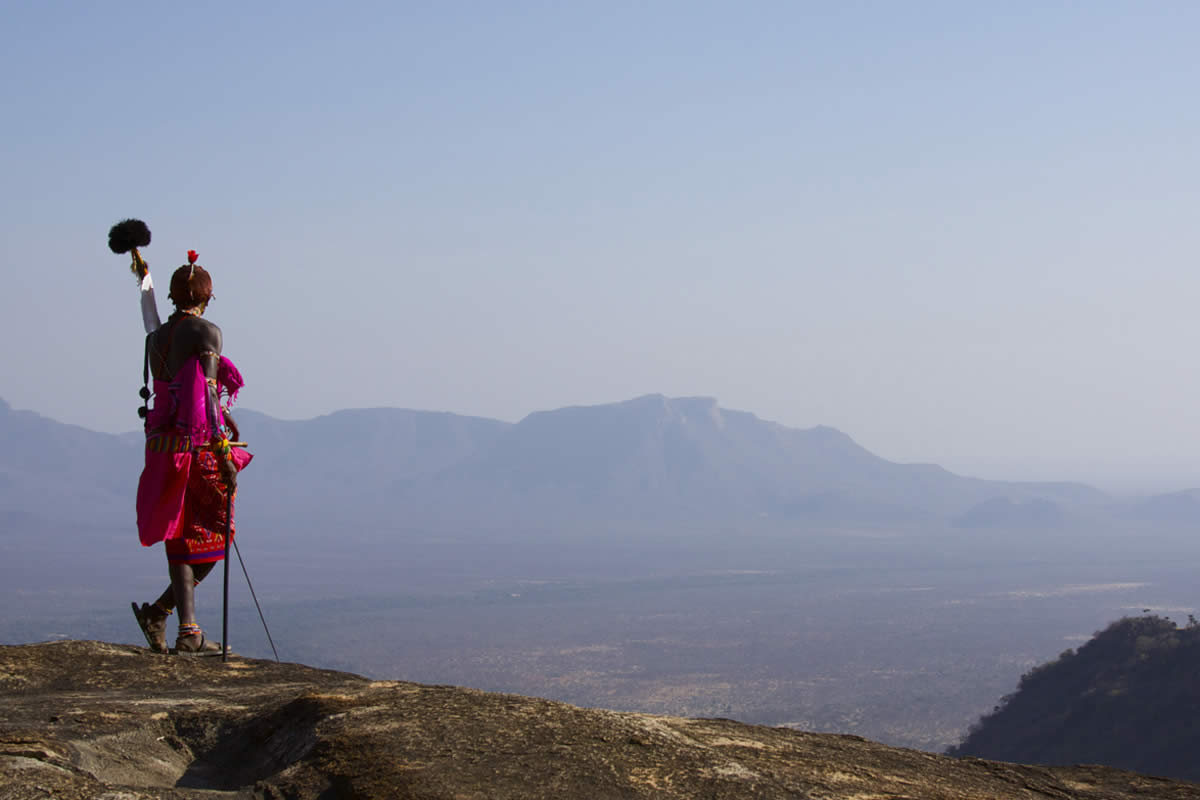
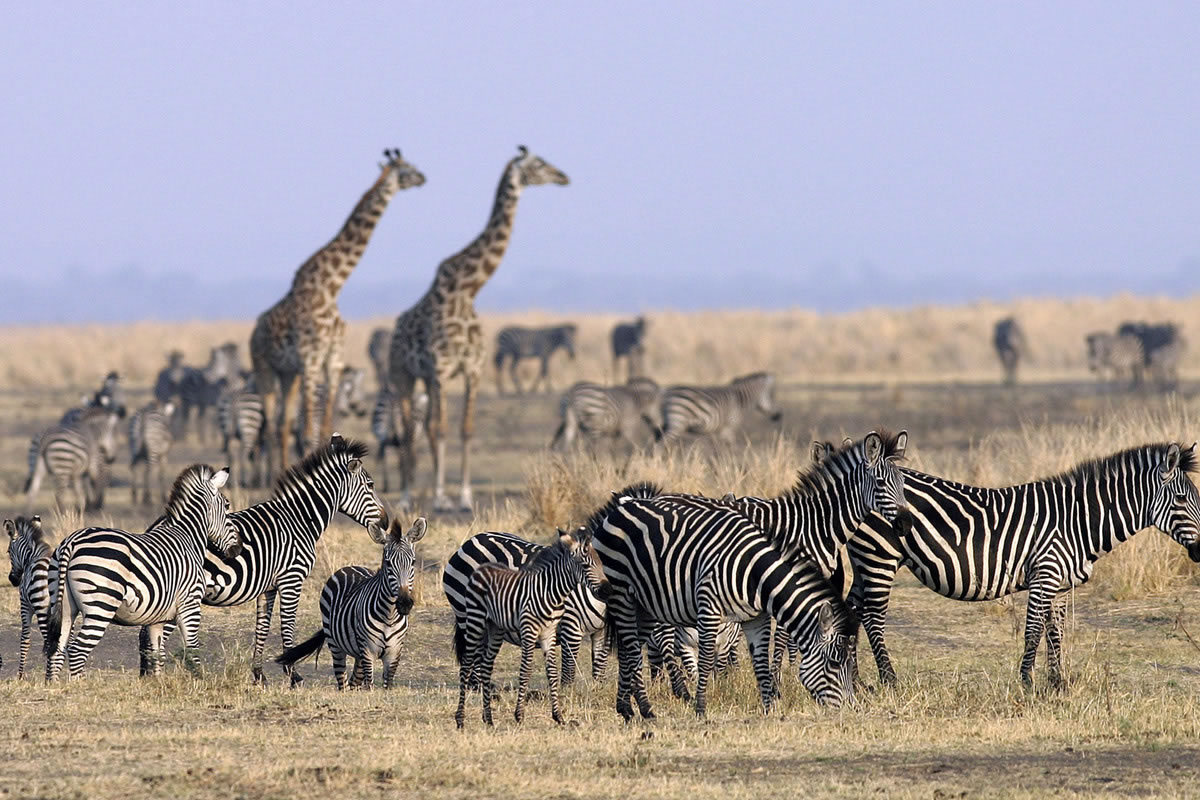

Leave a Reply